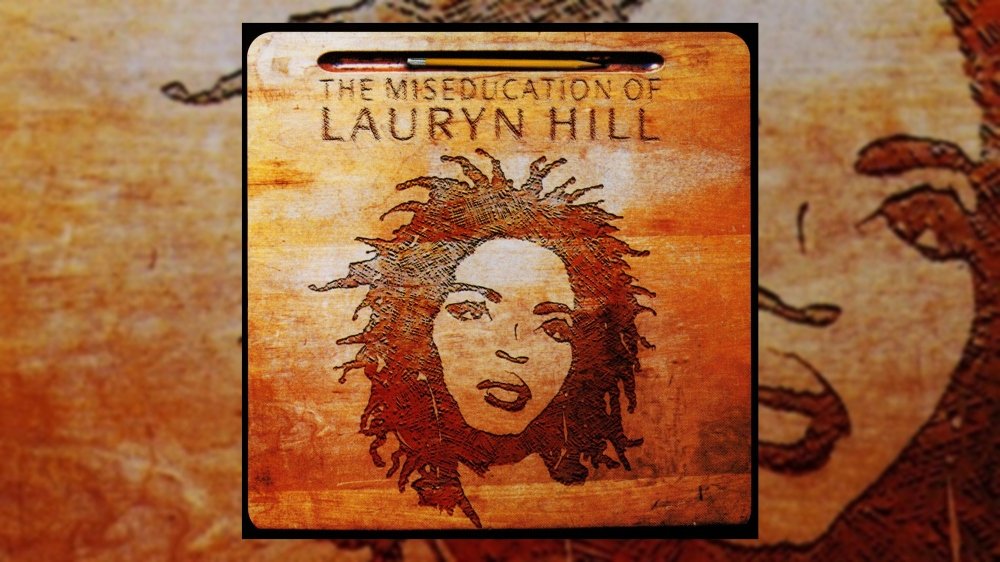Happy 25th Anniversary to Lauryn Hill’s debut solo album The Miseducation of Lauryn Hill, originally released August 25, 1998.
Twenty-five years?
Really?
Some albums seem to date a day after they are released, and others remain truly timeless. The Miseducation of Lauryn Hill is one of those timeless albums. If you didn’t know its original release date, you would be forgiven for assuming it was a current offering, one that more than holds its own against—and arguably transcends—the Cardis and Nickis of modern hip-hop.
But twenty-five years ago this week, this album dropped and hip-hop, wider music in general, and the artist that created it would never be the same. After two outings with Fugees, Lauryn Hill emerged as a shining star in her own right with her debut release, an album that would rocket her to seemingly reluctant fame.
As a refreshing counterpoint in the world of hip-hop, Hill took the braggadocio common to many of her male counterparts and flipped it, making a strong personal statement reflecting the many facets of the female perspective. Strong one moment, vulnerable and reflective the next, Hill brings a sense of authentic power to her flow.
Kicking off the album with “Lost Ones,” Hill takes no prisoners and demonstrates that female rappers should never be underestimated and can spit verses with just as much shock and venom as any male counterpart. Target aim squarely at what she saw as an oppressed and restricted role in the Fugees, Hill lets fly with rhymes hitting as hard as the punching reggae-hop beat. Hell hath no fury like a Lauryn Hill scorned.
On “Superstar,” she confronts the chart-chasing nature of many artists’ desire to see their name at the top of the charts, rather than pushing to grow themselves as inspirational artists.
This is what separated Hill from many of her contemporaries. Her desire to be an artist first and foremost, rather than a star. Pioneering the tone of the emerging neo-soul movement, Hill connected with presenting music that made people think and feel. She wanted her voice to matter. And on tracks like the warm hug with a warning reflection on sexual politics and relationships, “Doo Wop (That Thing),” Hill becomes an uplifting voice for a sex-fed generation.
Elsewhere on the stellar “To Zion,” a newly pregnant Hill muses on the pressures to terminate her pregnancy for the sake of career glories. It’s gut-wrenching in its honesty, unjust in its reflection of the advice, and inspiring in her open letter to her unborn child. As she states, her power comes from a decision to “choose to use my heart.”
Watch the Official Videos:
When listening to The Miseducation you often feel like you are intruding on Hill’s inner thinking. Her poetic rhymes read like journal entries, like you are flicking through her diary or riffling through a pile of private letters (love and otherwise). This is never more evident than on the mournful “When It Hurts So Bad” and the mirror holding of “I Used To Love Him” featuring another female force of power, Mary J. Blige.
Recording half the album in Jamaica, Hill’s affinity for reggae shines through and mixes effortlessly with her hip-hop and soul stylings. A track like “Forgive Them Father” is exhibit A.
Hill’s softer side is displayed on the Hathaway-esque duet with D’Angelo “Nothing Even Matters,” album closer “Tell Him” and her soulful reworking of the Frankie Valli and The Four Seasons hit “Can’t Take My Eyes Off Of You.”
A woman of her environment, Hill is equally at home looking outward as she is inward. On “Everything Is Everything” she reflects on the injustices often slung at her community and gives hope to the struggles they face as she sings “Everything is everything / What is meant to be is meant to be / After winter must come spring / Change, it comes eventually.” Backed with smooth beats and jagging string accents, “Everything Is Everything” is yet another standout on an album of standouts.
In fact it’s hard to fault the album at all. The way Hill draws on the music that inspires her, the way she draws from her life, the way she draws from her heart and mind.
The fact that the album still inspires modern artists (both Drake and Cardi B crib from her sublime “Ex-Factor”) twenty-five years after its release is a testament to the power of its contents. And whilst the success of the album was marred by a case brought by contributors New Ark who felt the Princely positioning of Hill as all-creating, all-writing, all-producing wasn’t truly reflective of their contribution, the effort still ranks as one of hip-hop’s most perfect outings on record.
Success was also a double-edged sword for Hill. Its success seemed to drive her further away from the spotlight and The Miseducation remains her only studio album. But if your career is going to be defined by one solo outing, then we should all aim for this.
The Miseducation of Lauryn Hill is the album that will forever remind me of sun-drenched weekends listening to it on repeat, falling further into the grooves and messages it contained. And in these days of dark clouds, a return to some familiar rays isn’t a bad thing at all.
LISTEN:
Editor's note: this anniversary tribute was originally published in 2018 and has since been edited for accuracy and timeliness.

